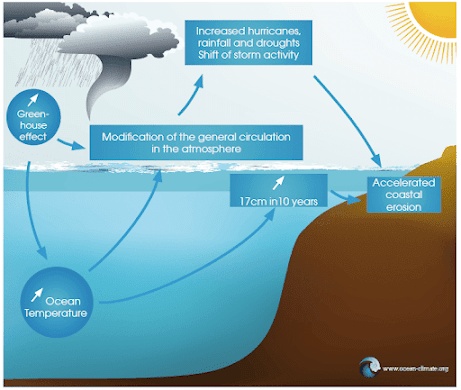Fall 11 Epigenetics and aquatic life
Epigenetics influences more than just humans. Aquatic life also have their own epigenome. The microbes, fish, mammals, etc. all rely on a healthy epigenome to regulate their cells. Like ours, aquatic life's epigenome can be altered by their environment.
One factor is their surrounding temperature, which is being impacted by overall climate change. As ocean temperatures change, the organisms epigenome can be altered.
Another factor is pollution. Toxic chemicals from oil spills, discarded medications, or microplastics can change the epigenome. This in turn affects their ability to function, survive, and procreate, devastating microbial populations.
Why is this important?
- Much of the worlds oxygen is produced from microbes in the water.
- Greenhouse gases are partially regulated by these microbes.
- Changes in epigenome can affect microbial populations and their ability to function.
- Fewer microbes means less oxygen and more greenhouse gases.
- Fewer microbes also means fewer fish (which we eat), because fish rely on microbes for food.
- Changes in greenhouse gas processing changes ocean temperatures
- The change in ocean temperature affects currents and sea levels
- All of these changes affect the rest of our planets climate, such as rain fall, wind, and erosion. This affects land based life, including humans, and our ability to grow food.



Comments
Post a Comment